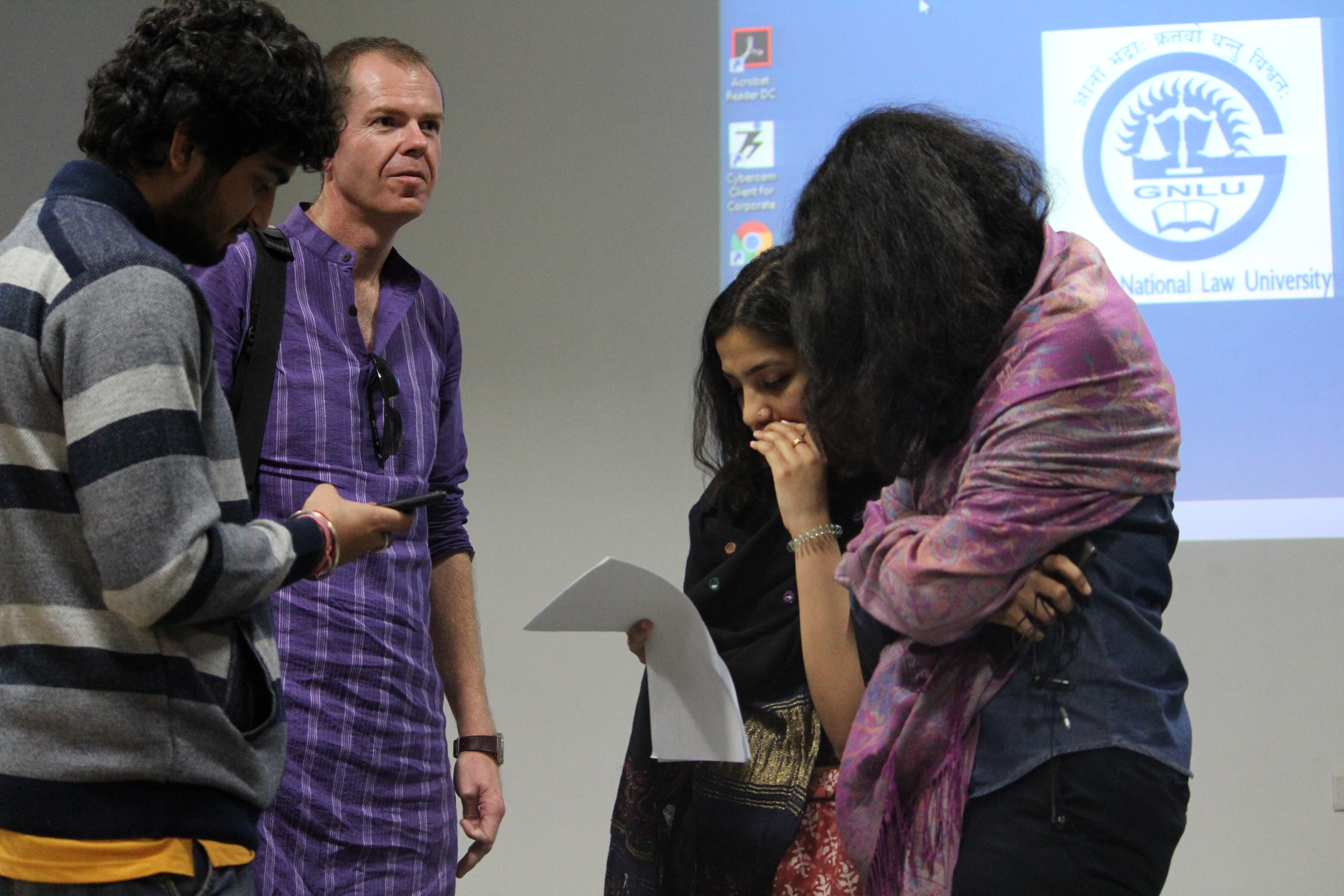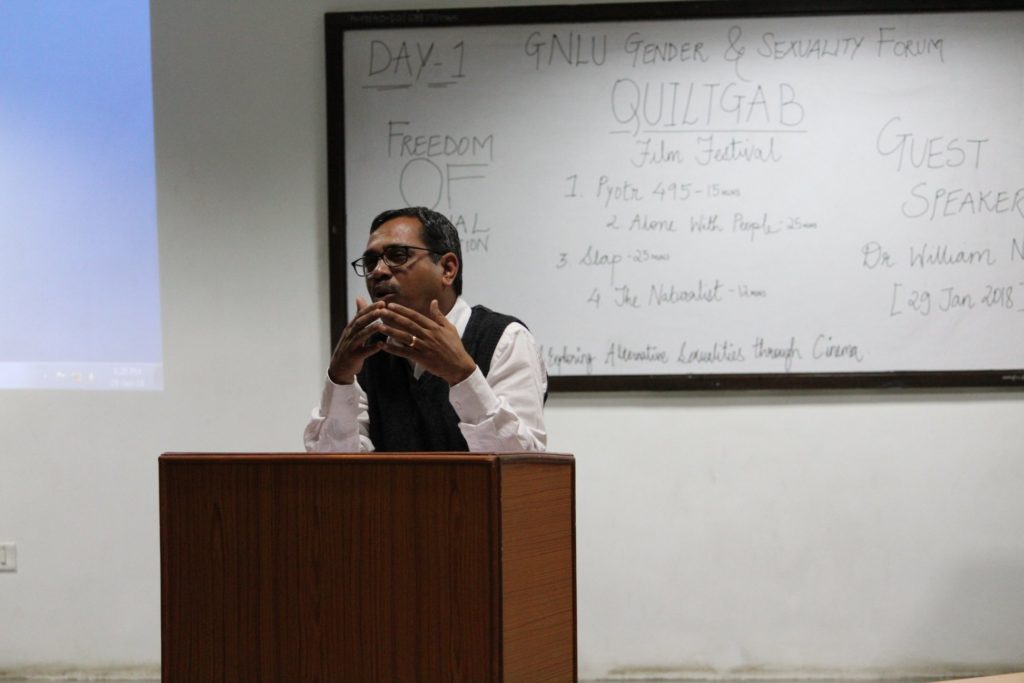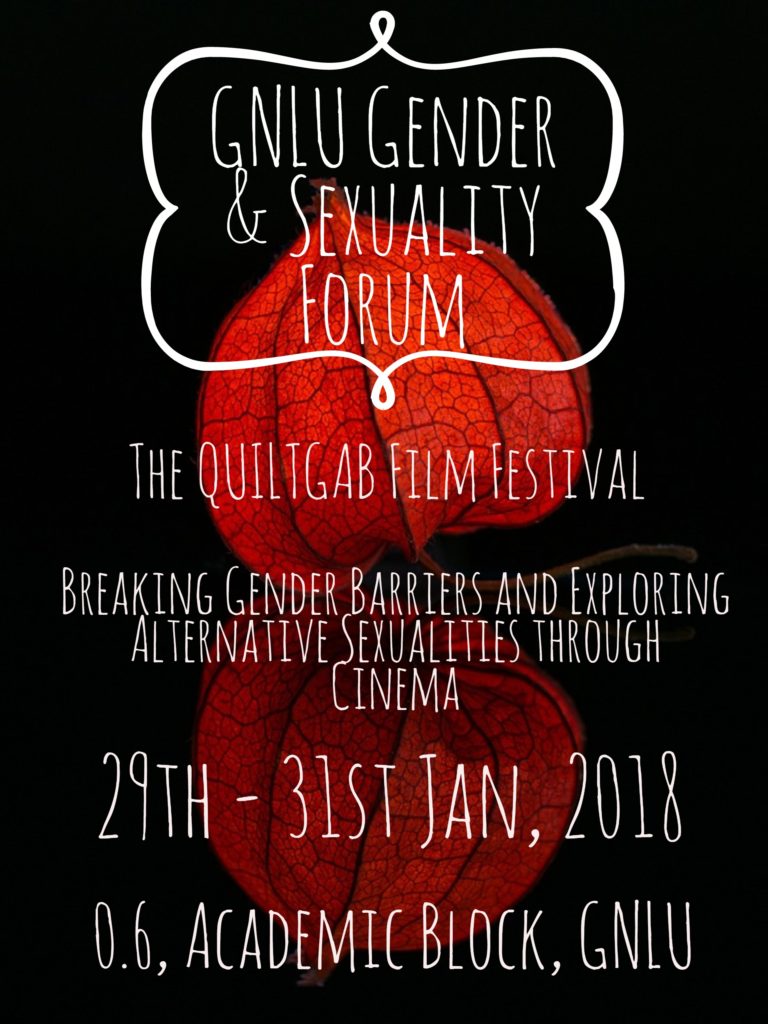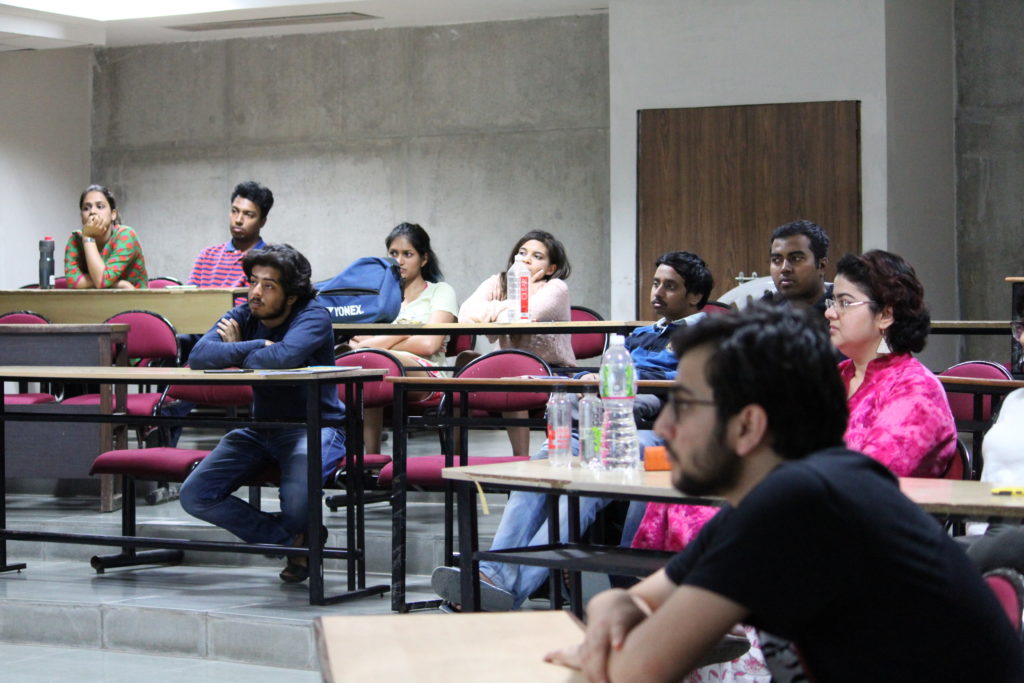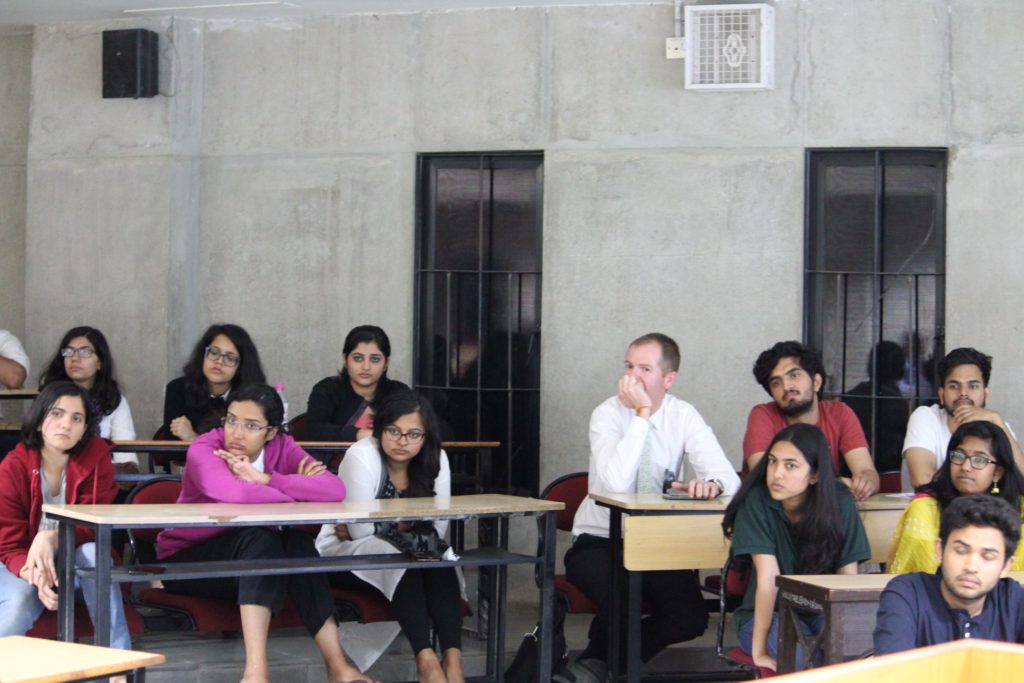By Arnaaz Ameer, Gujarat National Law University.
How the Gender and Sexuality Forum came about
In the summer of 2017, I developed an interest in gender studies. My knowledge of feminism or the issues faced by the LGBTQ community, till that point were restricted to articles I’d read in the news or random journals. Over the course of long evenings and lazy Sunday afternoons spent reading research articles on gender and sexuality within the Indian context, my overly enthusiastic self decided to write an email to a Professor seeking permission to set up a club with like-minded people getting together to talk about gender, sexuality, and mainly, the LGBTQ community.
The idea behind starting this forum was to understand real life problems faced by the LGBTQ community by researching (more through interpersonal interactions, than through laptop screens) and to create a safe space for members of the community to engage in dialogue and discourse.
The journey of the Gender and Sexuality Forum has been difficult, and at times, disheartening, in face of opposition from certain conservative factions of the student community. The only reason we have continued to function as a group is due to the involvement of a handful of students who took the initiative to join the forum when it was first started and resounding support from a certain faculty member who has served as our main link to the administration, without whom, we wouldn’t have had permission to exist in the first place.
After five months of inertia, and three months left till the end of my time at GNLU, I knew that if this forum was to continue to exist, we had to increase our visibility and engage with the larger student community at GNLU. So in my last semester at GNLU, despite my history of failed attempts at organizing film festivals on campus in the past, I decided to suggest that we hold such a festival, knowing fully well that there was every possibility of the idea getting shot down before it even took flight. Imagine my surprise then, when I was informed that I could go ahead with the idea, and that I had full support from the administration and the faculty in furthering this initiative.
From the time we were given permission to host the event, to the time of its culmination, every single member associated with the gender and sexuality forum has worked relentlessly to make this event a success.
About the Gender and Sexuality Forum
The GNLU Gender & Sexuality Forum seeks to promote the development of progressive Indian laws, acknowledging diverse sexualities and the fundamental right of sexual freedom, and provides a platform for discussion of current issues relating to the breaking of gender barriers, stereotypes, gender sensitization, the LGBTQ Community, among others. The Forum intends to advance this mission through high quality research, campaigns on sensitisation and awareness, and through events such as movie screenings, conferences, workshops and seminars aimed to develop a substantial knowledge base in this field. The idea is to provide a platform for exchange of knowledge amongst its stakeholders. The Forum’s vision is to engage various scholars, policy makers, professionals as well as students in relevant enquiries and dialogues for the development of the subject. It is created with an aim to encourage thoughtful discussion and to document and disseminate knowledge on a range of issues which arise in the current social setting of the state’s refusal to identify sexual freedom as a fundamental right and the need to represent sexually diverse individuals.
The Idea behind QuiltGab: The GNLU Gender and Sexuality Forum Film Festival
The idea behind QuiltGab (Where ‘Gab’ means the ability to articulate, and the term ‘QuiltGab’ is an acronym for queer, unidentified, lesbian, transgender, gay, asexual and bisexual) was to encourage dialogue and discourse on matters related to the LGBTQ community.
We divided the event across three days, screening movies that fit into the three themes of freedom of sexual orientation, challenging heteronormativity and transgender rights. Our guest speakers included Professor William Nunes, Associate Professor of Political Science with over a decade of teaching experience at GNLU; Mr. Dhaval Shah, a gay rights activist and a member of Trikone San Francisco among various queer support groups in the U.S., as well as India; and Chitra, a research scholar who has dedicated years of her life to researching on the lives and rights of transgenders, having presented her papers in various forums internationally.
Our main purpose behind holding the film festival was to create a safe space where students, scholars and experienced professionals could come together and explore subjects usually shunned in everyday discourse – such as, what does the freedom of sexual orientation entail, how does it feel to not have a label to assign to your gender identity, how to normalise homosexual relationships and encourage awareness and social acceptance of the LGBTQ community, how does it feel to undergo transition, among others.
Why the GNLU Gender and Sexuality Forum is Relevant
The LGBTQ community, though comprising more than 2.5 million of the Indian population, continues to be under-represented in Indian politics and the legislative landscape. As students of a National Law University, I believe it is our responsibility as future law makers and policy drafters, to work towards the inclusion of this marginalized community into workspaces and social institutions. Unfortunately, the struggle to guarantee the freedom of sexual orientation, or the right to choose a spouse regardless of their gender still has a long way to go.
An individual’s sexuality and sexual orientation is a purely personal matter. It becomes politicised only when individuals or factions of the society seek to brand them as socially unacceptable or inappropriate. The LGBTQ movement is not fired simply by the right to have sex with any consenting adult regardless of their gender – the movement is much bigger than that – it is about the right of recognition of one’s sexual identity, ensuring a life of dignity and self-worth, keeping in line with the constitutional principle of egalitarian treatment of all, and about the freedom to choose one’s own way of life, in one’s pursuit of happiness. Discriminating against a person based on their sexual orientation is akin to religion or caste based discrimination.
Historically, laws have been dictated by the norms prevalent in the socio-cultural context of the society existing at that time. The most productive way to champion the cause of the LGBTQ community is to sensitize the people outside of the community in order to de-stigmatize those within the community. We need to start with creating more inclusive spaces in our educational institutions – starting with creating support groups for members of the LGBTQ community. That is why the Gender and Sexuality Forum is so important – it brings us one step closer to creating an inclusive space, and making people feel that they are not alone – they too have a place in this society, they too have a voice and we, as a student community, are listening.
For, in the words of Bell Hooks, “Even in the face of powerful structures of domination, it remains possible for each of us, especially those of us who are members of oppressed and/or exploited groups as well as those radical visionaries who may have race, class, and sex privilege, to define and determine alternative standards, to decide on the nature and extent of compromise.”
For your reference:
The following movies were screened at the Film Festival, held between 29th to 31st January, 2018 at Gujarat National Law University:
PYOTR495 (15 minutes)
Alone with People (25 minutes)
SLAP (25 minutes)
The Naturalist (12 minutes)
Trevor (16 minutes)
Stray (23 minutes)
Pretty Boy (32 minutes)
Brace (24 minutes)
‘I’dentity – A documentary on Gender Identity Disorder (GID) (25 minutes)
Call Me Cate (25 minutes)
Pronouns (9 minutes)

